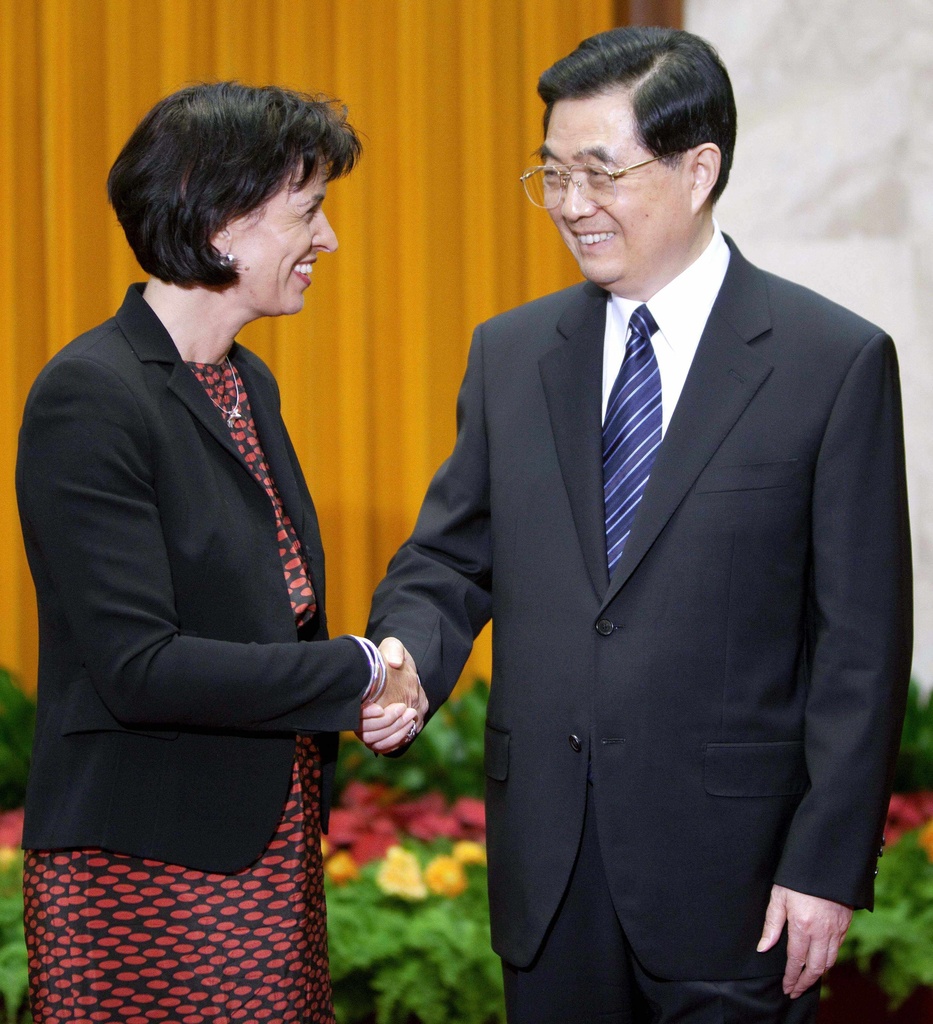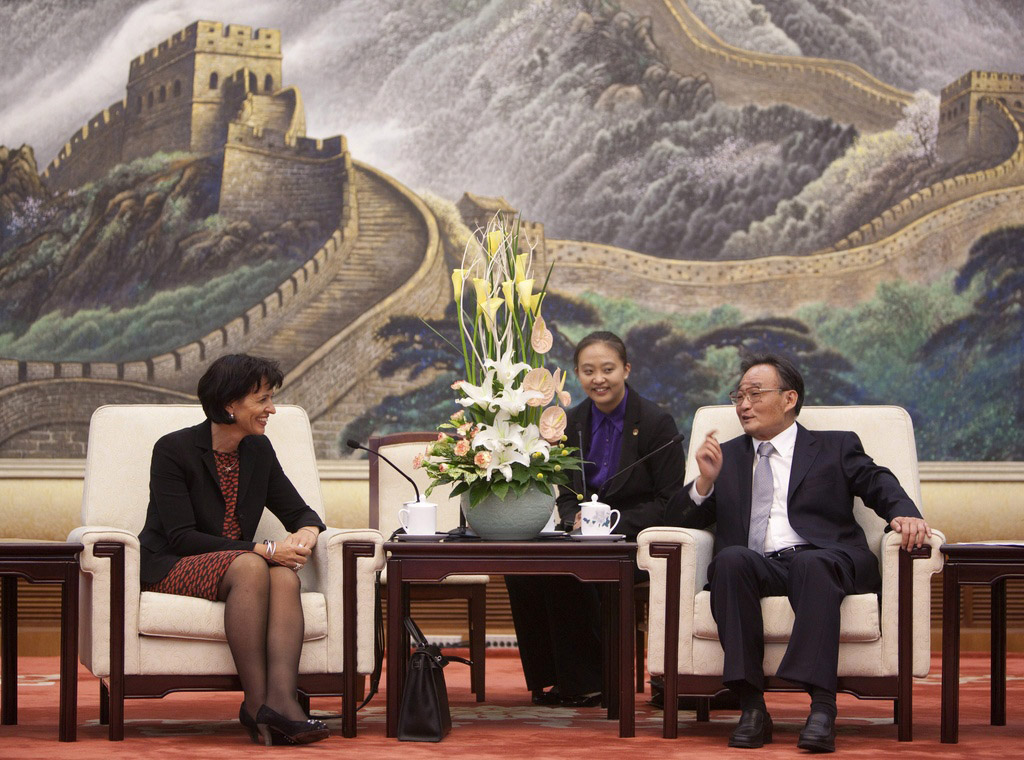Rich rewards expected from China trade treaty

Switzerland has given the green light to start negotiations towards a free trade agreement (FTA) with China, with high hopes of significant trade benefits.
A feasibility study suggests that Swiss gross domestic product (GDP) could be boosted by 0.23 per cent and industry could make annual savings of around SFr290 million ($297 million) as trade barriers are lifted.
Encouraged by the positive findings of the study, which suggested mutual benefits for both partners, the Swiss cabinet on Friday officially granted a mandate to open talks at the start of next year. China indicated last month that it also accepted the findings of the study.
As the fastest growing global economy, China represents an increasingly important market for Switzerland, particularly as struggling exporters look to move away from the weak euro zone.
Already, China is Switzerland’s third-most import trade partner (behind the European Union and the United States), with Swiss firms exporting goods and services to the value of SFr5.2 billion last year.
These exports could rise in value by 63 per cent with an FTA removing trade barriers, according to the study. The main beneficiaries would be companies that export machinery, electronics, pharmaceuticals, chemicals, precision instruments, watches and jewellery.
Watch trade boost
In addition, Swiss direct investment in China – for example, building infrastructure and investing in long term joint ventures – totalled SFr6.4 billion in 2008, an annual increase of SFr1.35 billion.
“[The FTA] will naturally bring relief, on the one hand on the export side, and on the other with direct investments,” Swiss Business Federation president Gerold Buhrer told swissinfo.ch last month.
The biggest relief would be felt in a reduction of duties for Swiss exported goods to China. The Swiss watch industry, in particular, currently faces a hefty bill for sending timepieces to one of its most lucrative markets.
Some 12.5 per cent of Swiss watch exports, with a value of around SFr700 million, ended up in China last year. But manufacturers were saddled with unusually high taxes of an average 15 per cent base duty and an additional 20 per cent luxury tax for high-end products.
“Altogether this is a high tax in global comparison,” Jean-Daniel Pasche, president of the Federation of the Swiss Watch Industry, told swissinfo.ch. “We hope and expect the FTA to reduce taxes.”
Thorny issues
The FTA negotiations will also tackle the thorny issue of intellectual property rights, with China often criticised for introducing cheap fake goods into the market.
“A lot of fake watches are manufactured in China and exported around the world,” said Pasche. “We would expect China to toughen its approach to counterfeit goods.”
Switzerland would clearly profit more from an FTA as Chinese tariffs are higher and Swiss goods would be expected to take some market share from other countries that do not have a trade treaty with China. But the benefits would not represent one-way traffic, according to the feasibility study.
Bilateral trade between the two countries as a whole could increase by nearly 50 per cent , to SFr15.4 billion.
Move away from EU
China’s exports to Switzerland, that currently stand at SFr4.63 billion, would be boosted by 28 per cent. In addition, the increased import of Swiss manufacturing hardware and know-how is expected to boost China’s exports to other parts of the world.
The report concludes that an FTA would also have the desired effect of shifting exports away from the European Union towards China.
Many manufacturers, stung by the recent effects of a weak euro on exports, have been talking for months about the benefits of diversifying away from the EU to more profitable markets like China.
Switzerland recognised the newly established People’s Republic of China on January 17, 1950, one of the first Western states to do so. It simultaneously withdrew recognition from the Republic of China (Taiwan).
Contacts with the People’s Republic were not initially close, owing to internal turmoil in China and the Cold War. The People’s Republic made its first appearance on the international stage when Chinese premier Zhou Enlai took part in the Indochina Conference in Geneva in 1954.
Bilateral relations between Switzerland and China have developed at a brisk pace since Deng Xiaoping launched his policy of liberalisation and reform in 1979.
There are currently 3,297 Swiss living in China. Around 300 Swiss firms with some 700 branches are active.
Since 2002 China, including Hong Kong, has been Switzerland’s most important trade partner in Asia. Swiss exports totaled SFr5.2 billion last year (10% down on 2008), while imports to Switzerland amounted to SFr4.9 billion (down 4%).
In the world as a whole, China is the third biggest exporter to Switzerland behind the EU and the US.
China is Switzerland’s third-biggest export market after the EU and the US.
China’s population of 1.33 billion is increasingly important for Swiss tourism.

In compliance with the JTI standards
More: SWI swissinfo.ch certified by the Journalism Trust Initiative











You can find an overview of ongoing debates with our journalists here . Please join us!
If you want to start a conversation about a topic raised in this article or want to report factual errors, email us at english@swissinfo.ch.